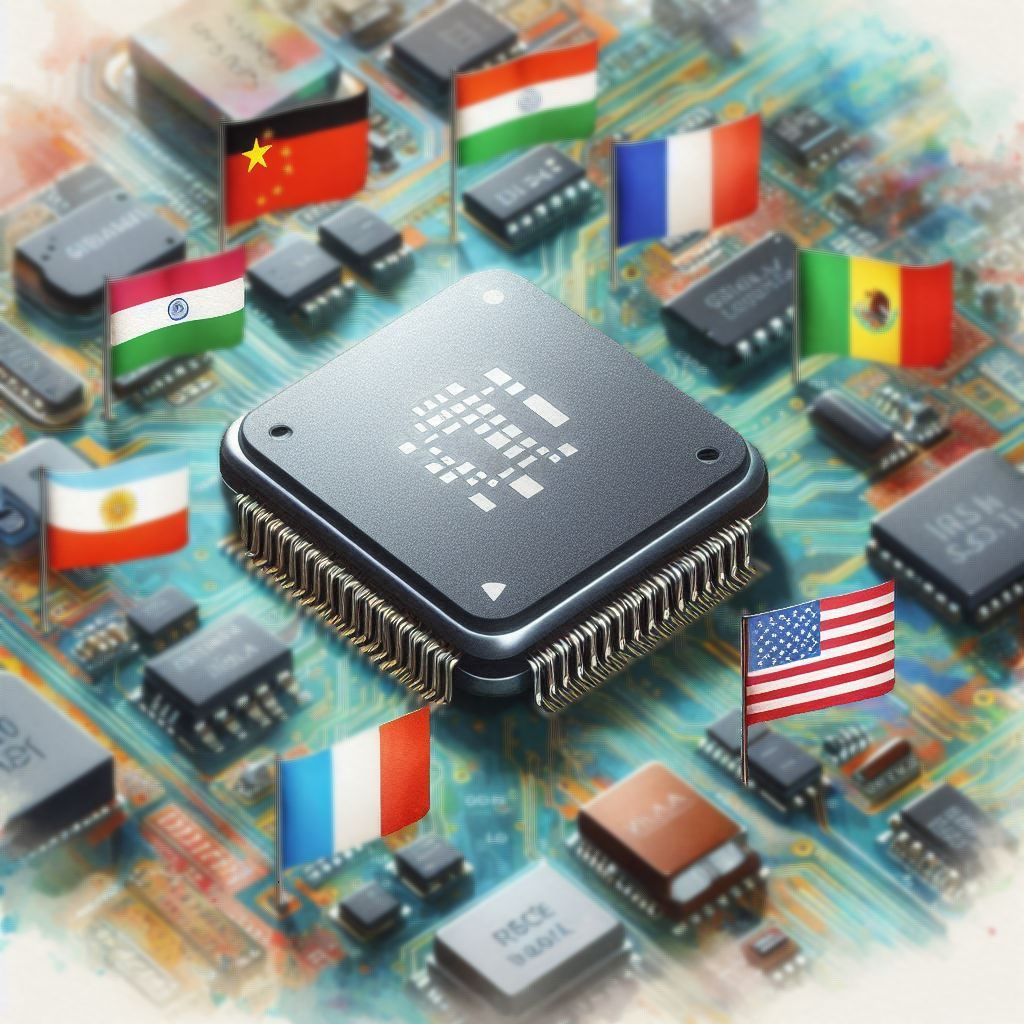China’s plans to invade Taiwan are no secret, but one of the hidden reasons behind this invasion is the power of semiconductors. Semiconductors have become the epitome of geopolitics due to their critical role in the global economy, national security, and technological dominance. These tiny chips power almost every modern device, from smartphones and computers to military systems and advanced machinery. Many nations including India and USA are vying for the share of this market. As the semiconductor race warms up, it would have sever impact on geopolitics.
Strategic Importance of Semiconductors for National Security
Semiconductors are tiny computer chips that are super important for the military. They help in things like guiding missiles, communication, watching out for danger, and protecting computer systems. Countries need these advanced chips to keep their military strong. For example, fighter jets, drones, and missile defense systems all use these chips to work. If countries can’t get these special chips, it could weaken their defenses, which is why making sure they always have a supply of semiconductors is very important. The whole revolution of Deftech revolves around semiconductors.
Dependence on a Few Key Players
The production of semiconductors is concentrated in a few countries, making the supply chain vulnerable. Taiwan, through companies like TSMC (Taiwan Semiconductor Manufacturing Company), and South Korea, with Samsung Electronics, dominate the production of advanced chips. The U.S. plays a crucial role in chip design and intellectual property, while China is the largest consumer of semiconductors. This concentration has created dependencies that are easily disrupted by geopolitical conflicts, trade disputes, or sanctions.
For instance, Taiwan’s dominant position in advanced semiconductor manufacturing has made it a focal point in the U.S.-China rivalry. Any tension involving Taiwan, such as threats from China over reunification, could lead to disruptions in the global semiconductor supply chain.
U.S.-China Semiconductors Rivalry
The semiconductor industry is at the heart of the U.S.-China technological rivalry. Both countries are racing to lead in next-generation technologies such as 5G, artificial intelligence (AI), and quantum computing, all of which require advanced semiconductors. The U.S. has imposed export controls and sanctions on Chinese firms, such as Huawei, to prevent China from gaining access to advanced chips and technology, which could boost its military and technological capabilities.
China, in response, has been heavily investing in developing its own semiconductor industry to reduce its reliance on foreign technology. However, this is a long-term challenge, as China still lags behind in producing the most advanced chips.
Huawei Claims Decade of Technological Breakthroughs Rivals 30 Years of Western Progress
Semiconductors Supply Chain Disruptions
The COVID-19 pandemic and geopolitical tensions have exposed the fragility of global semiconductor supply chains. Lockdowns in key manufacturing regions, such as Taiwan and South Korea, combined with global shipping delays, have led to chip shortages that have disrupted industries ranging from automotive manufacturing to consumer electronics. This shortage has prompted countries like the U.S. and the European Union to invest in domestic semiconductor production to reduce reliance on foreign suppliers and protect their economies.
The U.S. CHIPS and Science Act, which provides funding to boost domestic semiconductor manufacturing, is a response to these supply chain vulnerabilities. Similarly, the European Union has unveiled plans to increase semiconductor production to make the continent less dependent on imports.
Economic Significance
Semiconductors are the backbone of the global economy, enabling the digital revolution and the Fourth Industrial Revolution. From smart cities and autonomous vehicles to the Internet of Things (IoT) and healthcare technologies, semiconductors are critical to the development and growth of modern economies. Moreover, countries that dominate semiconductor production and innovation have a significant economic advantage.
Given their importance to innovation, semiconductors are also viewed as a strategic asset that can fuel future economic growth. Countries that fail to secure reliable access to advanced chips risk falling behind in the race for technological and economic leadership.
Sanctions and Export Controls
Countries use sanctions and export controls as a way to control each other, especially when it comes to semiconductors. For example, the U.S. has stopped selling advanced semiconductor technology to China. This is to make sure China can’t get certain chips that could help with military or spying activities. These rules also slow down China’s efforts to make its own chips without needing help from other countries.
In response, China is trying to create its own supply of semiconductors to get around these limits. The fight over who controls semiconductor technology has become a big issue in the U.S.-China trade conflict.
Semiconductors are not just a technological commodity; they are now a key factor in shaping global power dynamics. As the world becomes more reliant on technology, the geopolitical stakes surrounding the semiconductor industry will only grow, influencing global trade policies, alliances, and security strategies. The future of technological leadership, economic growth, and national security is tied to the control and production of semiconductors, making them the ultimate battleground in global geopolitics.





